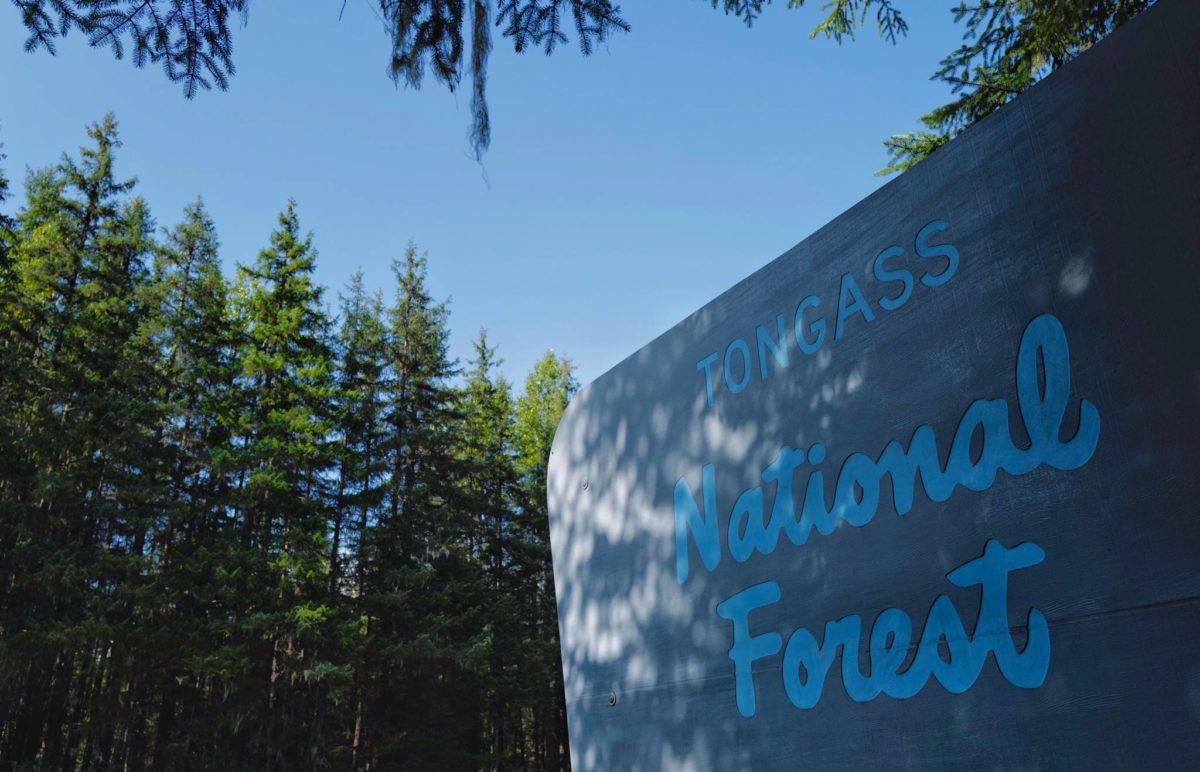By Helena Wayne
I have lived in Southeast Alaska for most of my life, and as a young Alaskan, I am greatly concerned as I watch my home change before my eyes because of climate change. Removing the Roadless Rule from the Tongass National Forest would exacerbate this trend of negative change to Southeast Alaska, Alaska as a whole and the entire planet.
Growing up in Juneau, it was always apparent that our best hope for economic, ecological, and cultural prosperity was in our healthy old-growth forests. Visitors come to experience the unique beauty of the Tongass. The Tongass is the largest national forest in the United States and encompasses around 17 million acres of land, providing a home to a diverse group of plants and animals. Commercial fisheries harvest hundreds of thousands of dollars worth of salmon every year, which would not be possible without the Tongass. The forest waterways provide the perfect habitat for the salmon to lay their eggs and for the eggs to develop. The young salmon rely on these wasters to be a safe place to feed and grow until they are strong enough to face the open ocean. Without the forest, fewer young salmon would be able to survive to make it to the ocean. Naturally this would mean the numbers of salmon in the waters around Alaska would decrease, and the fisheries would no longer be able to function.
Many people in Alaska depend on what they can get from the land and sea. The Native people of Alaska have relied on these ecosystems for thousands of years. During my time in school, I have learned more about how every ecosystem is connected in some way, and in changing one you are likely to cause changes to another. The Tongass is crucial for the success of the salmon, and in turn the salmon bring nutrients to the Tongass. The Roadless Rule protects the forest and all that live within it, including towns and communities, as well as protecting the many ecosystems beyond the Tongass.
Despite an overwhelming public mandate for the Roadless Rule to remain in place, the U.S. Forest Service is set to fully remove Roadless protections for the Tongass National Forest. I believe that this is in a large part because federal officials have no idea or don’t care what it would mean to those living in and around the Tongass. The people who propose this idea are not from Southeast Alaska, and so they do not have any real stake in whether the Roadless Rule stays in place, besides that of possible financial gain. They have not educated themselves about the consequences of clear-cutting. Many of the people calling for the removal of the rule have likely not even been to Southeast Alaska. To them, it is just a patch of land up north that could be earning them money. Clear-cutting may provide profits for a short time, although not without substantial cost to the taxpayer. But in the long term, it makes more sense financially to keep the Roadless Rule. The Tongass is very large and to many, it may seem infinite. But it is finite. Every acre is precious. Destroying the Tongass would destroy other avenues for profit. Fisheries around Alaska would close as the salmon disappeared. Fewer visitors would come to Alaska without the unique beauty of intact old-growth forests. The timber industry will never profit enough to compensate for these losses, and once the forest has been destroyed the timber industry will no longer be viable. It seems clear that the decision to remove the Roadless Rule will cause much more harm than good. Not only will it threaten our economy, our livelihoods, our food security, and our culture, it represents a serious threat to the way our democracy is supposed to work. Our leaders must listen to the people they represent, and they must listen to Indigenous voices, including by supporting the recent petition for a Traditional Homelands Conservation Rule.
We have made it very clear that we do not want this to happen, and our leaders should not be acting against us. Listen to the people, and protect this land. The health of our communities, the strength of our democracy and our way of life depend on it.
• Helena Wayne is a lifelong Juneauite and previously attended Western Washington University. Wayne is currently attending University of Alaska Southeast and plans to major in marine biology.

